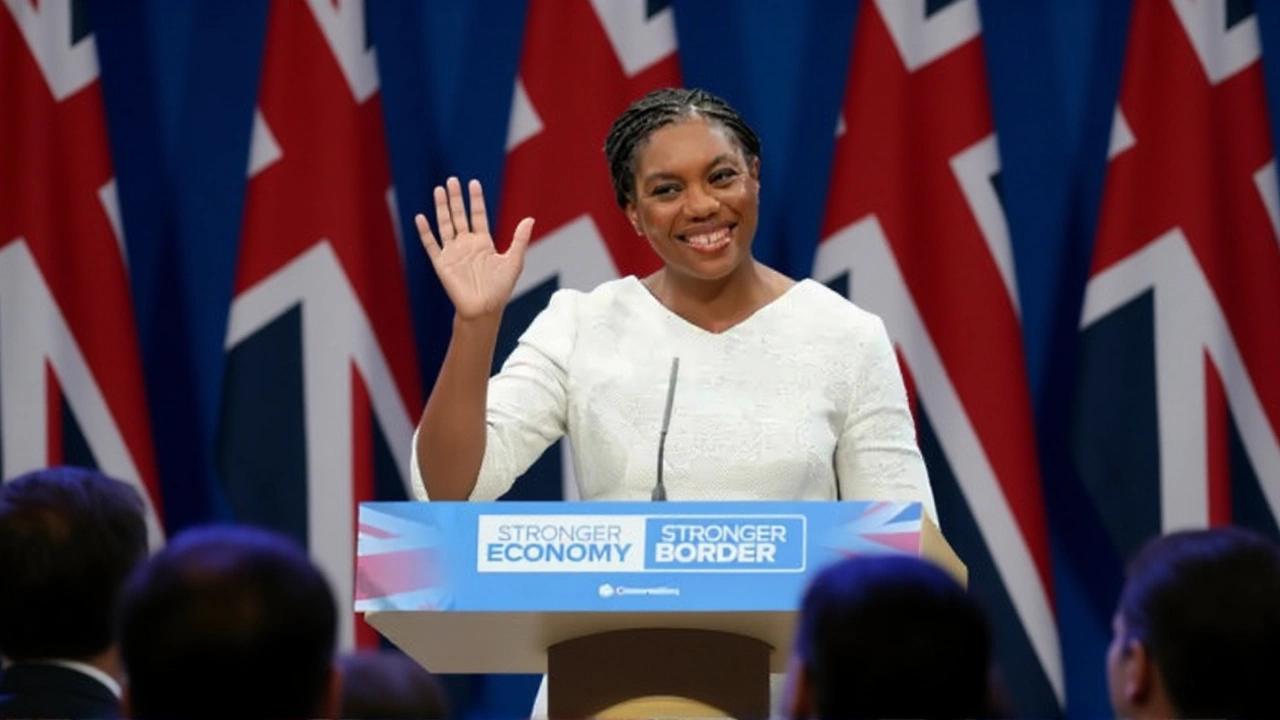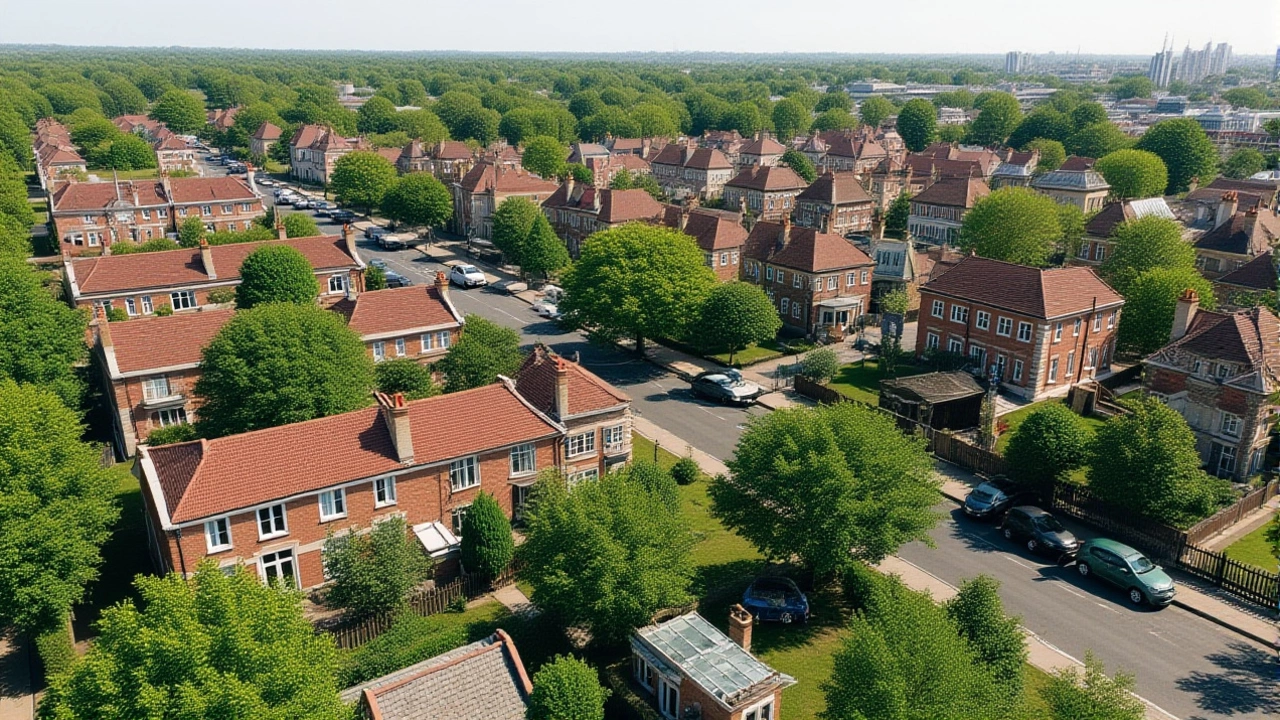During the Kemi Badenoch, Conservative Party leader’s speech at the party conference in Manchester, she branded stamp duty a "bad tax" that blocks mobility and keeps homes out of reach for millions. Stamp duty – the land‑transaction tax levied on property purchases – could disappear if her plan gains parliamentary backing, a move that would reshape the UK housing market virtually overnight.
Why the Proposal Matters
At its core, the idea is simple: strip away a charge that, according to the Conservative leader, discourages owners from moving, especially in high‑price areas like London and the South West. The logic is that without a hefty upfront bill, more people will feel confident to list their homes, spurring a wave of transactions that could lift construction, renovation and related services.
But the stakes go beyond buyer sentiment. The tax generated more than His Majesty's Treasury £15 billion in the 2023‑24 fiscal year. Losing that slice of revenue would force the government to either cut spending or find a new source of cash – a dilemma that’s already fueling fierce debate on Westminster’s floor.
Research Behind the Numbers
Support for the move leans heavily on data from We Buy Any Home. The firm commissioned the polling agency Obsurvant to interview 1,000 homeowners across the United Kingdom. Their findings? Roughly 17 % – about 2.5 million people – said stamp duty is the primary barrier stopping them from moving.
Age and geography amplified the concern. Forty‑six percent of respondents aged 65 + flagged the tax as a deal‑breaker, while in Northern Ireland the figure jumped to 60 %. In England, 49 % of homeowners in the South West and 45 % in London echoed the sentiment, underscoring how the charge bites hardest where property prices hover near the tax thresholds.
“The policy could transform the housing market by removing a major financial obstacle to moving,” said Elliot Castle, chief executive of We Buy Any Home. “It would ease the financial burden on potential buyers, unlock stalled transactions and encourage movement across all price brackets.”
Industry Reactions
London’s Evening Standard reported that the average stamp duty bill on a £561,300 home sits at £18,065 – a sum that many first‑time buyers describe as “a wall of cash” they can’t scale. Property portal Zoopla confirmed that 60 % of all stamp duty revenue comes from southern England.
“Stamp duty hits four in five homeowners and two in five first‑time buyers across the country, especially southern England where 60 % of all stamp duty is paid,” said Richard Donnell, executive director at Zoopla. “We welcome any proposals that remove the financial barriers to moving home. More home moves would support economic growth and the ambition to build more homes.”
The HomeOwners Alliance added that over 800,000 homeowners have postponed a purchase in the past two years because of stamp duty worries – a figure that could swell dramatically if the tax stays put.

Fiscal Concerns and Political Debate
Labour’s chancellor, Rachel Reeves, is already chewing over broader reforms. According to Quick Mortgages, she is weighing options from a full abolition (the Conservative line) to an annual property‑tax system modeled on the United States.
The American approach, where counties and school districts levy yearly taxes based on market values, offers a cautionary tale. States such as Illinois and New Jersey see some of the highest effective rates, while Hawaii enjoys the lowest. Critics argue that an annual levy could pressure retirees and low‑income families into selling – a scenario that would echo the very mobility issues the Conservatives aim to solve.
Fiscal conservatives warn that erasing a £15 billion revenue stream without a clear replacement could widen the deficit, forcing cuts to public services or a rise in other taxes. Economists are split: some see a potential boost in consumer spending and construction activity that could partially offset lost revenue, while others caution that any short‑term sales surge might be offset by long‑term volatility if buyers anticipate new taxes later.
Potential Alternatives and International Comparisons
Beyond the binary of keep‑or‑scrap, several middle‑ground ideas have surfaced. One proposal suggests lowering the existing bands – for example, raising the £300,000 first‑time‑buyer exemption to £400,000 – while keeping a scaled‑down charge for higher‑value homes.
Another notion is a “property‑transaction surcharge” earmarked for regional housing funds, allowing local councils to reinvest directly into affordable‑housing projects. This mirrors a limited version of the Dutch system, where municipalities collect a modest transfer tax that funds local development.
Internationally, Canada recently replaced its property transfer tax with a modest annual levy in British Columbia. The shift sparked a brief dip in sales, but long‑term data suggest a steadier revenue stream and less price‑inflation pressure on first‑time buyers.

What Comes Next?
The proposal received a standing ovation on the conference floor, but a vote in the House of Commons could take weeks or months. Opposition Labour MPs have already signaled they will demand a detailed fiscal impact assessment before any repeal is considered.
Meanwhile, the housing‑industry lobby is gearing up for intense lobbying. If the Conservatives manage to pass the repeal, the market could see a rush of listings in the summer months, as owners capitalize on a tax‑free window before any alternative scheme is introduced.
For now, prospective buyers should keep an eye on both party manifestos and Treasury briefings – the next few weeks will likely shape whether stamp duty becomes a relic of the past or simply a revised tool in the government’s fiscal toolbox.
Key Facts
- Proposed abolition announced by Kemi Badenoch at the Conservative conference in Manchester.
- Research by We Buy Any Home/Obsurvant says 2.5 million homeowners view stamp duty as the biggest barrier to moving.
- Average London stamp duty bill: £18,065 on a £561,300 property.
- Stamp duty generated over £15 billion for HM Treasury in 2023‑24.
- Labour’s Rachel Reeves is reviewing alternative property‑tax models, including an annual levy.
Frequently Asked Questions
How would scrapping stamp duty affect first‑time buyers?
First‑time buyers would no longer pay the transfer charge on homes up to £500,000, which currently can total several thousand pounds. In London, where the average bill is £18,065, removal could lower the upfront cost by up to 30 %, potentially freeing cash for deposits or moving expenses. However, if the government replaces the tax with a higher annual property levy, the long‑term cost picture could shift.
What fiscal gap would the government face without stamp duty?
The Treasury collected roughly £15 billion from stamp duty in the 2023‑24 tax year. Eliminating the tax would create a shortfall of that magnitude unless offset by spending cuts, higher income taxes, or a new revenue source such as an annual property tax. Critics argue the gap could force reductions in public services or add to the national debt.
Why does the opposition Labour Party favor an annual property tax?
Labour sees an annual levy as a more predictable revenue stream that can be adjusted for property‑value changes. It also aims to shift the burden from a one‑off transaction to a steady contribution, which could fund local services and housing initiatives. Critics warn it might hit retirees and low‑income owners harder, especially if property values rise faster than wages.
What regions would feel the biggest impact if stamp duty is abolished?
Southern England, particularly London, the South West and parts of the East, would see the sharpest change because 60 % of all stamp duty revenue comes from these areas. In contrast, regions with lower property prices, such as parts of the North East, already fall below the main tax thresholds, so the fiscal impact there would be modest.
When can we expect a decision from Parliament?
The proposal is still a policy idea. It must pass a detailed fiscal impact assessment, survive scrutiny in both the Commons and the Lords, and likely be part of a broader tax package. Realistically, a vote could occur sometime in early 2026, but political negotiations could delay or reshape the final outcome.
